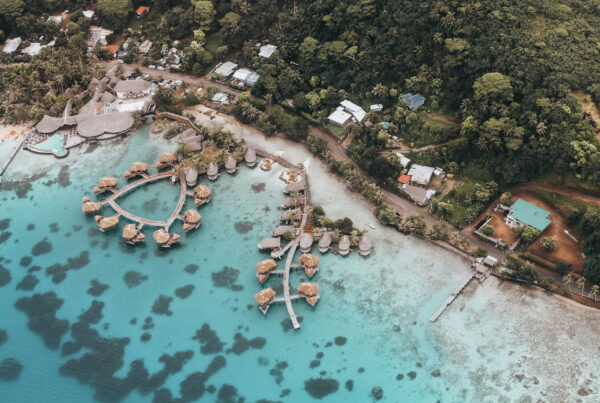In an era where ecological awareness is growing and the devastating impacts of climate change are starting to be felt by everyone, the tourism industry finds itself at a crucial crossroads.
Travellers are increasingly seeking experiences that not only satisfy their wanderlust but also align with their values of sustainability and conservation. There is a shift away from mass tourism toward mindful tourism experiences that are educational, bring together like-minded people and help travellers connect with the local community.
This shift has given rise to ecotourism, which promises to deliver unforgettable adventures while preserving the natural and cultural heritage of destinations.
However, as the popularity of ecotourism grows, so does the need for standardization and credibility within the industry. How can travellers distinguish genuine eco-friendly operations from those merely greenwashing their services? How can tourism professionals ensure they’re equipped with the knowledge and skills to deliver truly sustainable educational experiences?
This is where ecotourism certification programs come into play. These programs offer a structured path for tour operators, hotels and other tourism businesses to gain the expertise needed to run sustainable tourism operations. They provide a seal of approval that conscientious travellers can trust and help push the entire industry towards more responsible practices.
When I work with clients to help them get more bookings for their ecolodge, tours or retreats at my marketing agency Social Creators, I often recommend that they join different sustainable tourism certification programs to follow a structured roadmap for improving their sustainability practices and becoming carbon neutral to provide proof that they practice what they preach.
Whether you’re a tourism entrepreneur looking to enhance your credentials or a mindful traveller wanting to understand the qualifications behind your next eco-adventure, this list will provide valuable insights into the world of sustainable tourism certifications.
1. Global Sustainable Tourism Council (GSTC) Certification
- Focus: Sustainable tourism management and operations
- Duration: Varies by certifying body
- Recognition: Worldwide
- Key Features: Sets global standards for sustainable travel and tourism
The GSTC Certification is considered the gold standard for sustainable tourism certifications. They focus on hotels, tour operators and tourism destination agencies.
The certification covers four main areas: sustainable management, socio-economic impacts, cultural impacts and environmental impacts. The Global Sustainable Tourism Council doesn’t directly certify organizations but accredits other certifying bodies to ensure they meet GSTC’s rigorous standards.
This certification starts with GSTC reviewing your business against global sustainability standards. They check environmental practices, social impact and cultural preservation. Assessments happen every three years and annual reviews ensure you stay on track.
Pricing:
- Application fee: $750
- Audit costs: $2,000-$4,000
- Annual fee: $500-$1,500
2. EarthCheck Certification
- Focus: Environmental management and sustainability for tourism organizations
- Duration: Ongoing certification process
- Recognition: Global
- Key Features: Scientific benchmarking, certification, and advisory group
EarthCheck brings scientific rigor to sustainable tourism certifications. They’re based in Australia but they certify tourism businesses worldwide.
Their certification program involves benchmarking, performance assessment and third-party auditing. It covers areas such as energy efficiency, conservation of natural resources, waste management, and social and cultural issues.
EarthCheck works with businesses of all sizes, from small ecolodges to large hotel chains. They start with a scientific assessment of your operations from which they measure your performance against industry standards. Then they provide you with tools to track progress and give you annual third-party audits to verify your results and improvements.
Pricing:
- Initial registration: $1,200-$2,500
- Annual fee: $900-$2,000
- Assessment costs: Varies by size and location
3. Biosphere Responsible Tourism
- Focus: UN Sustainable Development Goals
- Duration: Ongoing certification process
- Recognition: Global
- Key Features: Online management system, support tools
This certification helps your organization align its sustainability practices with the UN’s 17 Sustainable Development Goals.
It’s backed by UNESCO and the World Tourism Organization. When you sign up their online system tracks your progress toward achieving sustainable development goals and they provide a wide range of helpful tools for continuous improvement.
Biosphere Responsible Tourism ultimately gives you a well-defined structure to define, organize and make your sustainability goals and priorities visible so you can reach a market that is looking for more sustainable tourism experiences.
Pricing:
Initial certification: €1,000 – €2,500
Annual fee: €500 – €1,500
Audit costs: €800 – €2,000
4. Green Step
- Focus: Sustainability For Tourism
- Duration: 1-3 Months
- Recognition: North America
- Key Features: Carbon Measurement, Climate Action Plans, Sustainability Strategy
Green Step is an ecotourism certification program designed to help tourism businesses become more sustainable. They offer a flexible, step-by-step approach to certification through 5 different certification levels, which allow businesses improve at their own pace.
They are based in Canada and it looks like most of their clients are Canadian but they also provide certifications globally to help tourism businesses become more sustainable in their operations.
If you want to assess how sustainable your business is, they offer a free assessment and sustainability score on their website.
Pricing:
Annual fee: $899 – $2,499
5. Sustainable Tourism Network
- Focus: Accessible sustainable practices
- Duration: Ongoing
- Recognition: Global
- Key Features: Sustainable Development Goals, Audit Process
Sustainable Tourism Network (STN) membership is open to all tourism businesses who want to integrate sustainable practices into their business.
Their mission is to provide sustainability practices in bite-sized chunks on a guided journey that provides ongoing training, support, best practices and access to case studies.
It’s one of the more affordable ecotourism-related certifications and they provide a series of logos and seals you can add to your website once you have completed their program.
Pricing:
- Membership: €180 – €800
6. Rainforest Alliance Sustainable Tourism Certification
- Focus: Sustainable management of tourism businesses
- Duration: Initial assessment plus annual audits
- Recognition: Americas and Caribbean
- Key Features: Focuses on environmental, social, and economic sustainability
This certification program is designed for tourism businesses operating in or near rainforests and sensitive ecosystems. It assesses businesses on their environmental practices, employee treatment, community relations and cultural sensitivity.
They offer a deep expertise in biodiversity protection with a strong focus on local community benefits. Their experts assess your impact on local ecosystems and they review your community engagement.
After the assessment, they work to provide you with practical guidelines for improving your sustainability and biodiversity protection practices. A good place to start exploring sustainability in your business is by reading their user’s guide to certification for sustainable tourism and ecotourism.
Pricing:
- Initial audit: $1,000 – $3,000
- Annual fee: Based on revenue, typically $500 – $2,000
7. Green Globe Certification
- Focus: Sustainable operation and management of travel and tourism businesses
- Duration: Annual certification process
- Recognition: Worldwide
- Key Features: Structured assessment of sustainability performance of travel and tourism businesses
The Green Globe Certification offers a structured sustainability certification program for the travel and tourism industry.
Their program covers 44 core criteria supported by over 380 compliance indicators, based on international standards and agreements.
Their certification process includes training, a sustainability assessment, and an independent on-site audit, with annual renewal required to maintain certification.
Pricing:
First year: $750 – $2,500
Annual membership: $650 – $1,800
Audit fees: $1,500 – $2,500
8. Sustainable Tourism Education Program (STEP)
- Focus: Sustainable tourism practices for various sectors of the tourism industry
- Duration: Varies by course
- Recognition: North America
- Key Features: Offers different levels of certification for various tourism sectors
The Sustainable Tourism Education Program (STEP) provides education and certification in sustainable tourism practices tailored to different sectors of the industry, including hotels, tour operators and tourism destinations.
The program offers a tiered approach, allowing tourism businesses to progress from basic sustainability practices to more advanced levels. The emphasis is on practical, actionable steps towards sustainability.
If you want to run a carbon-neutral business, they offer a 5-step process that can put your business on the path toward carbon neutrality.
Pricing:
- Application: $500
- Assessment: $1,500 – $3,000
- Annual renewal: $250 – $750
9. Green Key
- Focus: Environmental management and sustainable operations
- Duration: 3-6 Months (Annual Renewal)
- Recognition: International (not USA/Canada)
- Key Features: Corporate social responsibility, reducing environmental footprint
Green Key is a widely recognized sustainable tourism certification program operated by the Foundation for Environmental Education. They have certified over 6000 tourism businesses in 70 countries.
Established in 1994 by HORESTA (Association of the Hotel, Restaurant and Tourism Industry in Copenhagen, Denmark), it has since become one of the largest global eco-certification programs in the tourism industry.
It is designed to help tourism businesses who want to demonstrate exceptional commitment to sustainable operations and environmental stewardship. Notably, they operate internationally with the exception of the United States and Canada.
Pricing:
- Application fee: €300 – €500
- Annual fee: €200 – €400
- Audit costs: €500 – €1,000
10. TIES Ecotourism Certificate Program
- Focus: Principles and practices of ecotourism
- Duration: Self-paced online course
- Recognition: International
- Key Features: Covers ecotourism planning, management, and marketing
The International Ecotourism Society (TIES) offers a comprehensive online certificate program designed for tourism professionals, students and entrepreneurs interested in ecotourism.
I wanted to cover TIES because they come up prominently in searches but they have developed a bad reputation and their website doesn’t seem to be recently updated. Their courses covers the history and principles of ecotourism, sustainable tourism development, marketing for ecotourism and current issues in the field.
If you’re looking for a general overview of ecotourism practices to gain some practical knowledge and skills to implement sustainable practices then the TIES program might be a good starting point for you but I would do more thorough research before working with them.
Pricing:
- Annual fee: $80
- Courses: $980 for 10 courses, core and electives
Choosing The Right Ecotourism Certification For Your Business
The wide array of ecotourism certification programs available today reflects the growing commitment to sustainability within the tourism industry.
For tourism operators and guides, obtaining certification through one or more of these programs can provide a competitive edge in an increasingly eco-conscious tourism market. It demonstrates a commitment to best practices in sustainability, which can enhance the quality and authenticity of the experiences you offer to travellers.
For travellers, understanding these certifications can help them make informed choices about eco-friendly travel options. By supporting certified operators and guides, tourists can ensure their adventures have a positive impact on local communities and environments.
However, it’s important to note that certification is just the beginning. The true value of these programs lies in the ongoing implementation of sustainable practices and the continuous improvement of tourism operations.
Ultimately, the growth of ecotourism certification programs signals a positive shift in the tourism industry. It represents a move towards more responsible, sustainable and meaningful nature-connected travel experiences.
As more tourism businesses become certified and more travellers seek out certified ecotourism experiences, we can move closer to a future where there’s a shift from mindless overtourism to mindful tourism that can be a powerful force for environmental conservation and cultural preservation.
- 10 Sustainable Travel Trends Driving The Future of Tourism - March 9, 2025
- 10 Tips To Sell Out Your Transformational Retreats In 2025 - February 20, 2025
- Build 10 Habits That Free Up Your Time With Mindful Coaching - February 11, 2025





